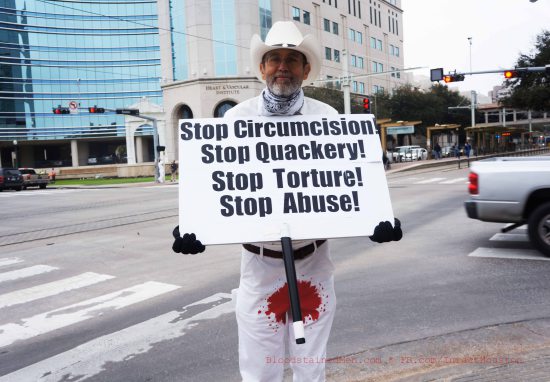And remember, dear friends… anything that affects a female who has been circumcised surely will affect a circumcised male as well. Trauma is trauma – no matter the gender. And the worst part of circumcision is not the physical cut, but the psychological repercussions.
Protect your child from adults with knives and he or she will grow up to be far more peaceful, trusting and happy than someone who has been grievously injured unnecessarily due to fashion, superstition or to assuage any other adult fear.
—
By Amy Norton, Reuters
September 24, 2012
NEW YORK (Reuters Health) – Women who underwent genital cutting as young girls may be at increased risk of physical, sexual or emotional abuse from their husband, a study of women in Mali suggests.
The study, of nearly 7,900 women, found that 22 percent of those with genital mutilation said they’d been physically abused by a husband or male partner. That compared with 12 percent of women who’d never been subjected to the procedure.
It’s estimated that more than 130 million women worldwide have undergone genital mutilation, also known as female “circumcision.” The centuries-old practice, which involves removing part or all of a girl’s clitoris and labia, and sometimes narrowing the vaginal opening, remains a common practice in some countries, mainly in sub-Saharan Africa.
It’s well-known that genital cutting has long-term consequences for women – including sexual dysfunction, childbirth complications, incontinence and psychological disorders.
In the new study, researchers looked at whether there’s a link between genital mutilation and a woman’s odds of suffering abuse from her partner.
In Mali, where the vast majority of women have undergone genital mutilation, the government has taken steps to raise awareness of the consequences of the practice. But genital mutilation has not been outlawed.
The difficulty is that genital cutting is widely seen as an important cultural tradition, rather than a form of abuse.
“If something is entrenched in a culture, it is difficult to change,” said Dr. Hamisu Salihu of the University of South Florida in Tampa, the lead researcher on the new study.
On the other hand, physically abusing your wife – though common in Mali and other African countries – does not have that cultural acceptance, Salihu told Reuters Health…
READ MORE: YAHOO! Health
SOURCE: BJOG: An International Journal of Obstetrics and Gynaecology, online August 24, 2012

